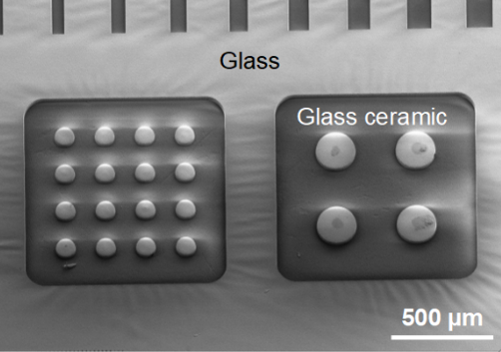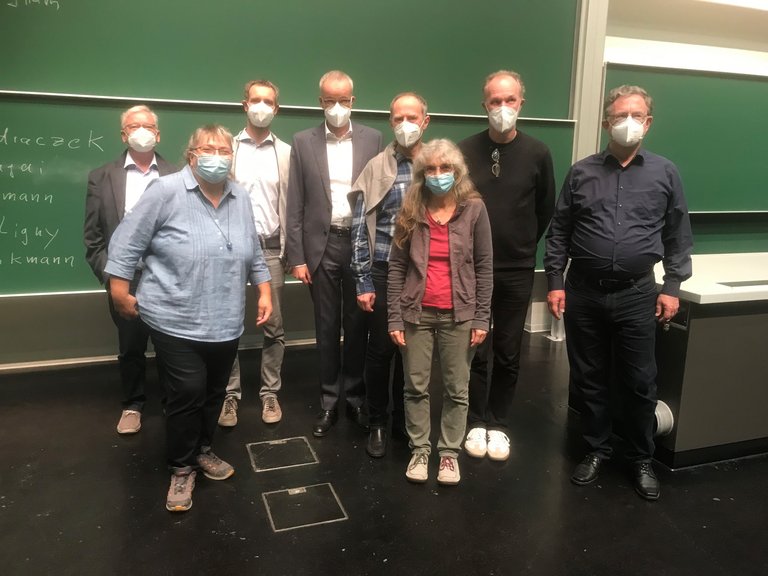At the end of September, the TU Ilmenau hosted the meeting of the Technical Committee I "Physics and Chemistry of Glass" of the German Glass Technology Association. The association had invited to an event of this kind for the first time again after a long interruption due to the pandemic and had chosen the TU Ilmenau for the premiere.

Professor Edda Rädlein, Head of the Group for Inorganic-Non-Metallic Materials and Deputy Chair of DGG Expert Committee I, welcomed a total of 30 experts from the fields of glass science, development and production to the meeting, which was organized as a hybrid event, either on site or via video link.
Improved description of the glass network
The Technical Committee I "Physics and Chemistry of Glass" deals with current basic research results. The nine contributions focused on investigations into ageing and crystallisation behaviour, microstructuring and, above all, the description of what makes glass glass: the defined deviation from the order of crystalline substances in stoichiometric composition.
This time it was particularly impressive to see how high-resolution images, theoretical calculations and measurements of mobility and conductivity from completely different angles can explain more and more precisely what constitutes a glass network,
concludes the Ilmenau host, whose own research focuses in particular on glass microstructuring. The image above shows microstructured test objects made of glass under the scanning electron microscope at the Center for Micro- and Nanotechnologies at TU Ilmenau.
TU Ilmenau for the third time Gestgeber
The external guests praised the good organisation of the meeting, the facilities of the conference venue and the basic opportunity for joint discussion. On behalf of the German Glass Engineering Society, its managing director Dr. Thomas Jüngling thanked the TU Ilmenau for its hospitality in hosting the meeting for the third time:
I was very pleased that we were able to continue the scientific exchange in the form of a joint meeting again. Thanks to the optimal conditions offered by TU Ilmenau for hybrid events, we were also able to welcome committee members who were further away and some of whom came from neighbouring countries."
FA Chairman Dr. Ulrich Fotheringham also drew a very positive conclusion:
'We have heard exciting presentations on current research topics, welcomed new players and exchanged project ideas that have given further impetus to our work in research and practice'.
The Deutsche Glastechnische Gesellschaft unites members from all areas of glass science, development and production. It provides a forum for scientific exchange and the promotion of glass research. The DGG meets annually at different locations in Germany. Six technical committees, further working groups and working groups deal with specific topics and usually meet once in spring and once in autumn. The subject of the Technical Committee I "Physics and Chemistry of Glass" is current basic research results. Other DGG committees are dedicated to glass melting technology, shaping and quality assurance, environmental protection and glass history and design. In addition, the association works closely with its sister society "Hüttentechnische Vereinigung der Deutschen Glasindustrie" and is involved in the European Glass Society and the International Glass Society.

Contact
Prof. Edda Rädlein
Head of the Group for Inorganic-Nonmetallic Materials

